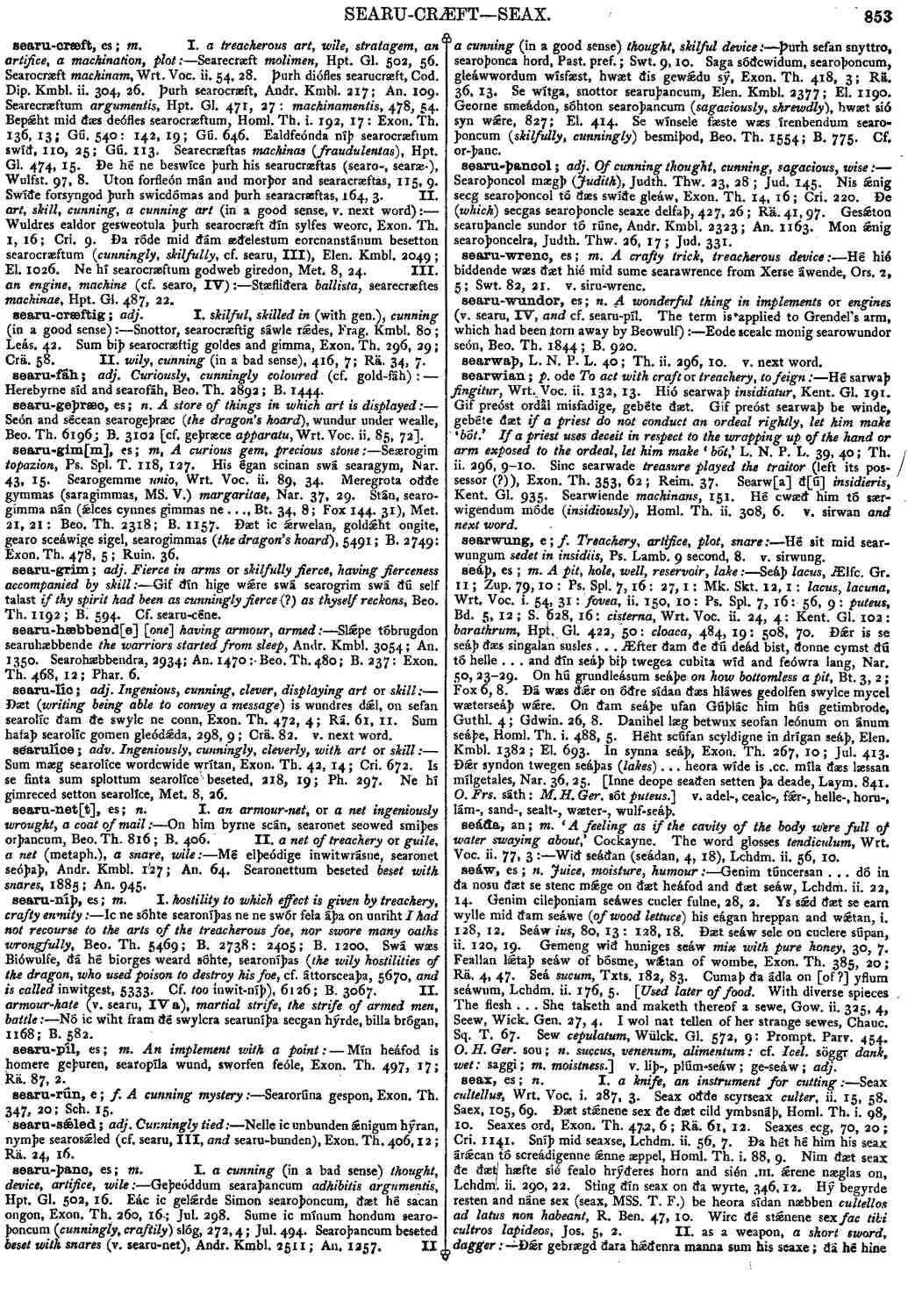seáþ
- noun [ masculine ]
-
Seáþ lacus, Ælfc. Gr. 11; Zup. 79, 10: Ps. Spl. 7, 16: 27, 1: Mk. Skt. 12, 1: lacus, lacuna, Wrt. Voc. i. 54, 31: fovea, ii. 150, 10: Ps. Spl. 7, 16: 56, 9: puteus, Bd. 5, 12; S. 628, 16: cisterna, Wrt. Voc. ii. 24, 4: Kent. Gl. 102: barathrum, Hpt. Gl. 422, 50:
cloaca,
- 484, 19: 508, 70.
-
Ðǽr is se seáþ ðæs singalan susles . . . Æfter ðam ðe ðú deád bist, ðonne cymst ðú tó helle . . . and ðín seáþ biþ twegea cubita wíd and feówra lang,
- Nar. 50, 23-29.
-
On hú grundleásum seáþe
on how bottomless a pit,
- Bt. 3, 2; Fox 6, 8.
-
Ðá wæs ðǽr on óðre sídan ðæs hláwes gedolfen swylce mycel wæterseáþ wǽre. On ðam seáþe ufan Gúþlác him hús getimbrode,
- Guthl. 4; Gdwin. 26, 8.
-
Danihel læg betwux seofan leónum on ánum seáþe,
- Homl. Th. i. 488, 5.
-
Héht scúfan scyldigne in drígan seáþ,
- Elen. Kmbl. 1382; El. 693.
-
In synna seáþ,
- Exon. Th. 267, 10; Jul. 413.
-
Ðǽr syndon twegen seáþas (
lakes
) . . . heora wíde is .cc. míla ðæs læssan mílgetales,- Nar. 36, 25.
Bosworth, Joseph. “seáþ.” In An Anglo-Saxon Dictionary Online, edited by Thomas Northcote Toller, Christ Sean, and Ondřej Tichy. Prague: Faculty of Arts, Charles University, 2014. https://bosworthtoller.com/27291.
Checked: 0